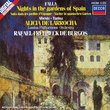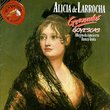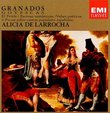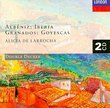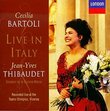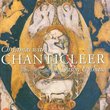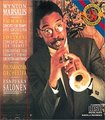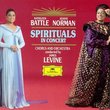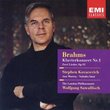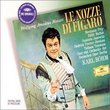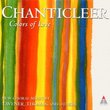| All Artists: Enrique Granados, Alicia De Larrocha Title: Granados: Escenas románticas; Bocetos; Cuentos de la juventud Members Wishing: 0 Total Copies: 0 Label: RCA Release Date: 8/5/2003 Genres: New Age, Classical Styles: Chamber Music, Historical Periods, Classical (c.1770-1830) Number of Discs: 1 SwapaCD Credits: 1 UPC: 090266336821 |
Search - Enrique Granados, Alicia De Larrocha :: Granados: Escenas románticas; Bocetos; Cuentos de la juventud
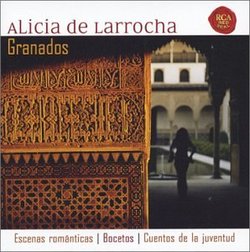 | Enrique Granados, Alicia De Larrocha Granados: Escenas románticas; Bocetos; Cuentos de la juventud Genres: New Age, Classical
|
Larger Image |
CD DetailsSimilar CDsSimilarly Requested CDs |
CD ReviewsUnknown Granados D. A Wend | Buffalo Grove, IL USA | 06/18/2004 (4 out of 5 stars) "Enrique Granados is famous for his Goyescas; a work deeply imbued with a Spanish idiom. However, as this disc proves, he wrote many pieces that were rooted in European Romanticism. The works recorded her sound closer to Schumann and Brahms than to music written by a Spanish composer. The Escenas romanticas (Romantic Scenes) is a suite made up of six short pieces for piano beginning with a uncharacteristic Mazurka that has little to do with its Slavic dance origins. It is followed by a Berceuse, then a slow Lento piece characterized by brilliant keyboard runs, a short beautiful melody marked Allegro, a Rhapsody-like movement and ends with an Epilogue that is reminiscent of Chopin. Overall, the suite is a lyrical reflection of earlier composers; the writing is contemplative and reflective.Bocetos (Sketches) are a set of short intimate studies. They are titled: The Hunter's Call, The Fairy and the Child, Very Slow Waltz and The Afternoon Bell. The pieces are highly descriptive and vary in expression. The Hunter's Call is jocular, the Fairy and the Child reminded me of Debussy in the quicksilver writing, the Waltz is close enough to Chopin to be mistaken for one of his works. The Afternoon Bell has a bucolic feel, describing a lovely landscape.The final suite is Cuentos de la juventud (Stories of Youth) and consists of ten short pieces, the longest lasting two and a half minutes. The pieces are named: Dedication, The Beggar Woman, May Song, Old Tale, Coming From the Fountain, Memories from Infancy, The Ghost, The Orphan Girl and March. I found the first piece, Dedication, sounding like an extension of The Afternoon Bell. The Beggar Woman has an interesting trio section that seems to describe the activities of the titled woman. The Ghost is fun to listen to and would probably accompany a comedy more than a scary scene with a ghost. The March is, as one might expect, the liveliest piece in the collection. It also has something of a Spanish feel to it and, for me, was more characteristic of Granados' more familiar works. Taken together the pieces are pleasant miniatures that are evocative of their titles. Alicia de Larrocha plays with great beauty and phrasing. Clearly, this is music close to her heart. Unfortunately, the disc times out at 52:26, which in these days of CDs playing up to 80 minutes is woefully short. I am wondering if there could not have been something additional (even reissuing something) that could have been placed on the disc. This is an interesting disc that reminds us that Granados had another side to his music but, because they often sound like other composers, it seems that the composer was seeking to imitate rather than create something original." Alicia de Larrocha's latest great recording John Kwok | New York, NY USA | 12/13/2003 (5 out of 5 stars) "The Spanish pianist Alicia de Larrocha has been celebrated for decades for her superb interpretations of keyboard works by the likes of Haydn, Mozart and Beethoven (Recently she made her final concert appearances in North America; I had the pleasure of hearing her perform a Haydn piano concerto at New York City's Lincoln Center, accompanied by the New York Philharmonic several months ago.). She has also been noted for her enthusiastic support of Spanish composers such as Albeniz, de Falla and Granados. In her latest recording, she offers fine, lyrical performances of these Granados works for the piano, offering vibrant, atmospheric portraits of Spain tinged with Impressionism. Though she is forsaking North America as a venue for her concert appearances, this latest recording of hers still shows a remarkable artist at the height of her powers. Hopefully it will not be the last recording by one of the 20th Century's most gifted pianists."
|

 Track Listings (20) - Disc #1
Track Listings (20) - Disc #1